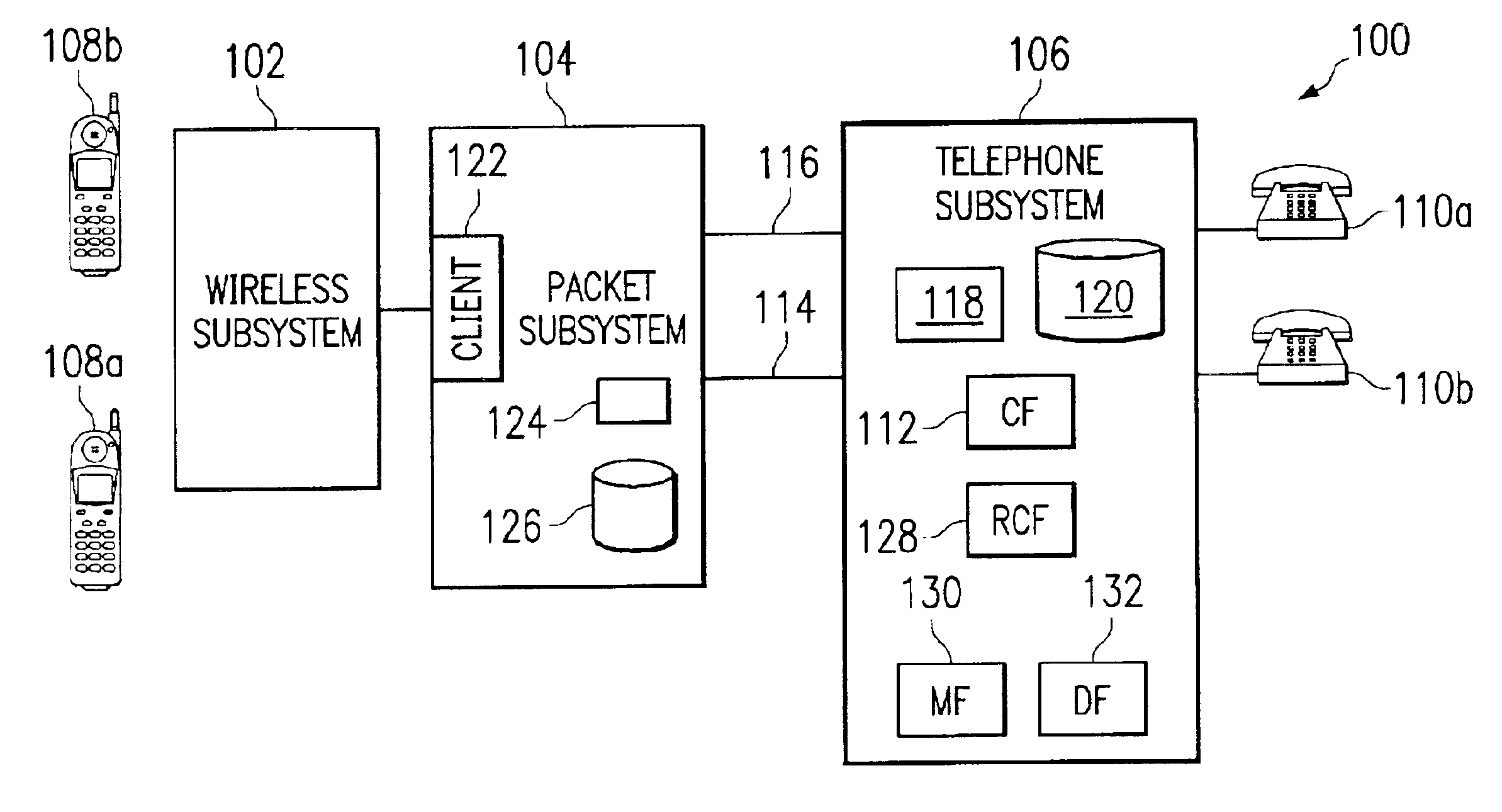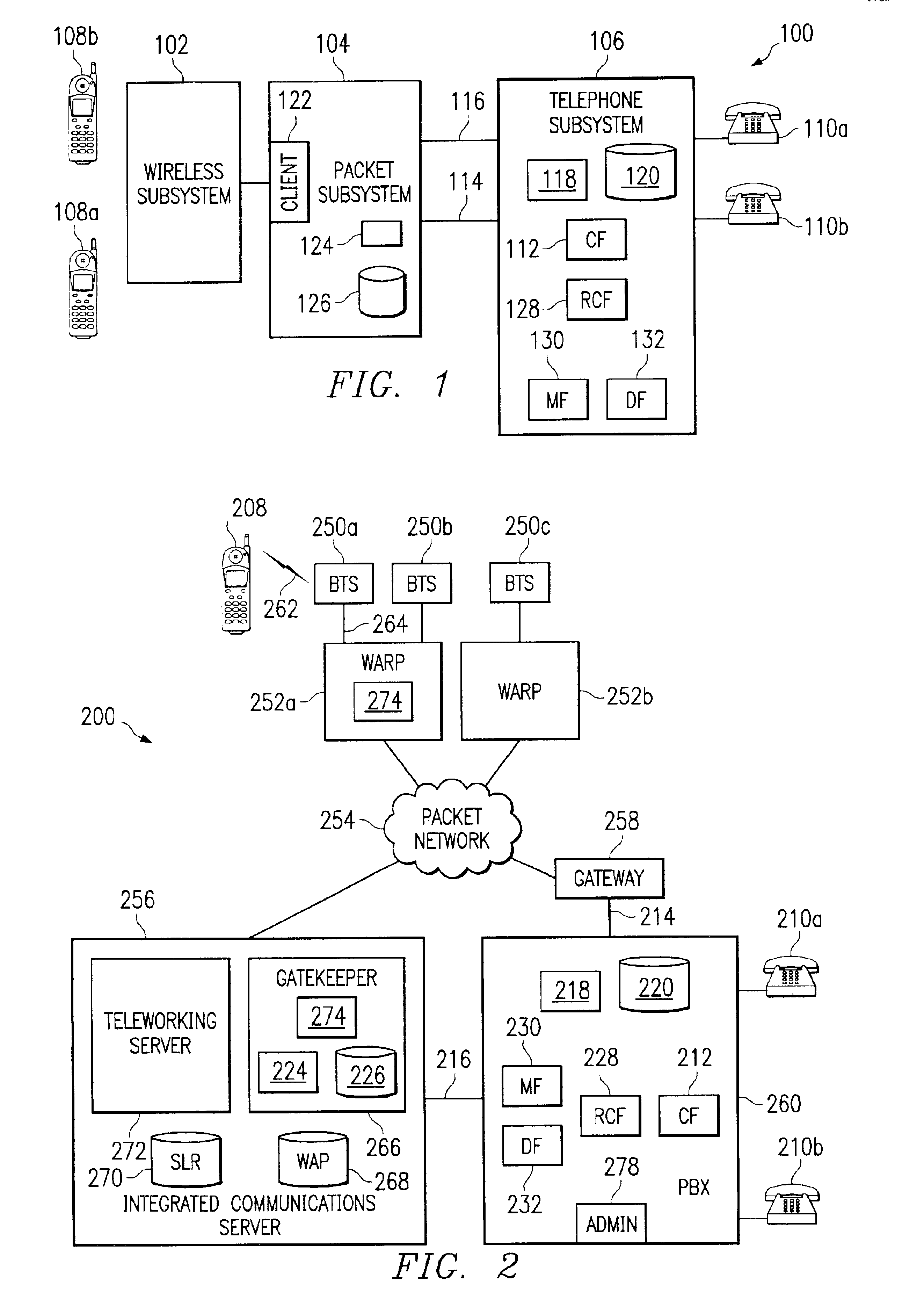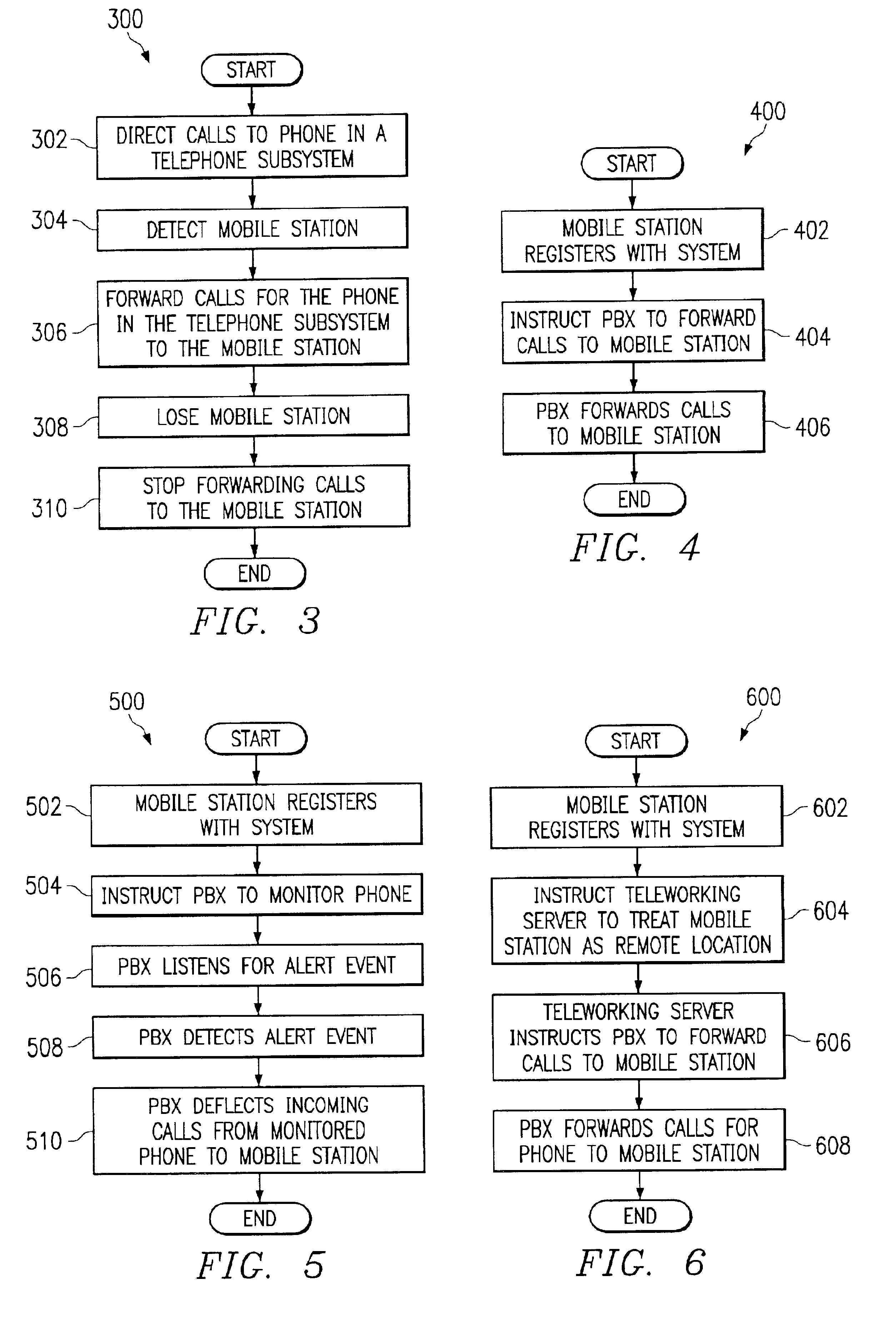System and method for call forwarding in a communication system
a communication system and call forwarding technology, applied in the field of communication systems, can solve the problems of user manual activation, user forgetting to the user's inability to manually turn on or off the call forwarding feature, so as to eliminate or reduce the disadvantages and problems associated with manual activation
- Summary
- Abstract
- Description
- Claims
- Application Information
AI Technical Summary
Benefits of technology
Problems solved by technology
Method used
Image
Examples
Embodiment Construction
[0029]FIG. 1 is a block diagram illustrating an exemplary system 100 for call forwarding. In the illustrated embodiment, system 100 includes a wireless subsystem 102, a packet subsystem 104, and a telephone subsystem 106. Other embodiments of system 100 may be used without departing from the scope of the present invention.
[0030]In one aspect of operation, one or more mobile stations 108 communicate with wireless subsystem 102, and one or more telephones 110 communicate with telephone subsystem 106. A mobile station 108 may be associated with one or more telephones 110, such as when a subscriber using mobile station 108 also has a desk telephone 110 in an office. When mobile station 108 registers with wireless subsystem 102 and / or packet subsystem 104, telephone calls directed at telephone 110 may be forwarded to mobile station 108. For example, a call forwarding feature (CF) 112 in telephone subsystem 106 may be used to forward calls for the associated telephone 110 to mobile statio...
PUM
 Login to View More
Login to View More Abstract
Description
Claims
Application Information
 Login to View More
Login to View More - R&D
- Intellectual Property
- Life Sciences
- Materials
- Tech Scout
- Unparalleled Data Quality
- Higher Quality Content
- 60% Fewer Hallucinations
Browse by: Latest US Patents, China's latest patents, Technical Efficacy Thesaurus, Application Domain, Technology Topic, Popular Technical Reports.
© 2025 PatSnap. All rights reserved.Legal|Privacy policy|Modern Slavery Act Transparency Statement|Sitemap|About US| Contact US: help@patsnap.com



